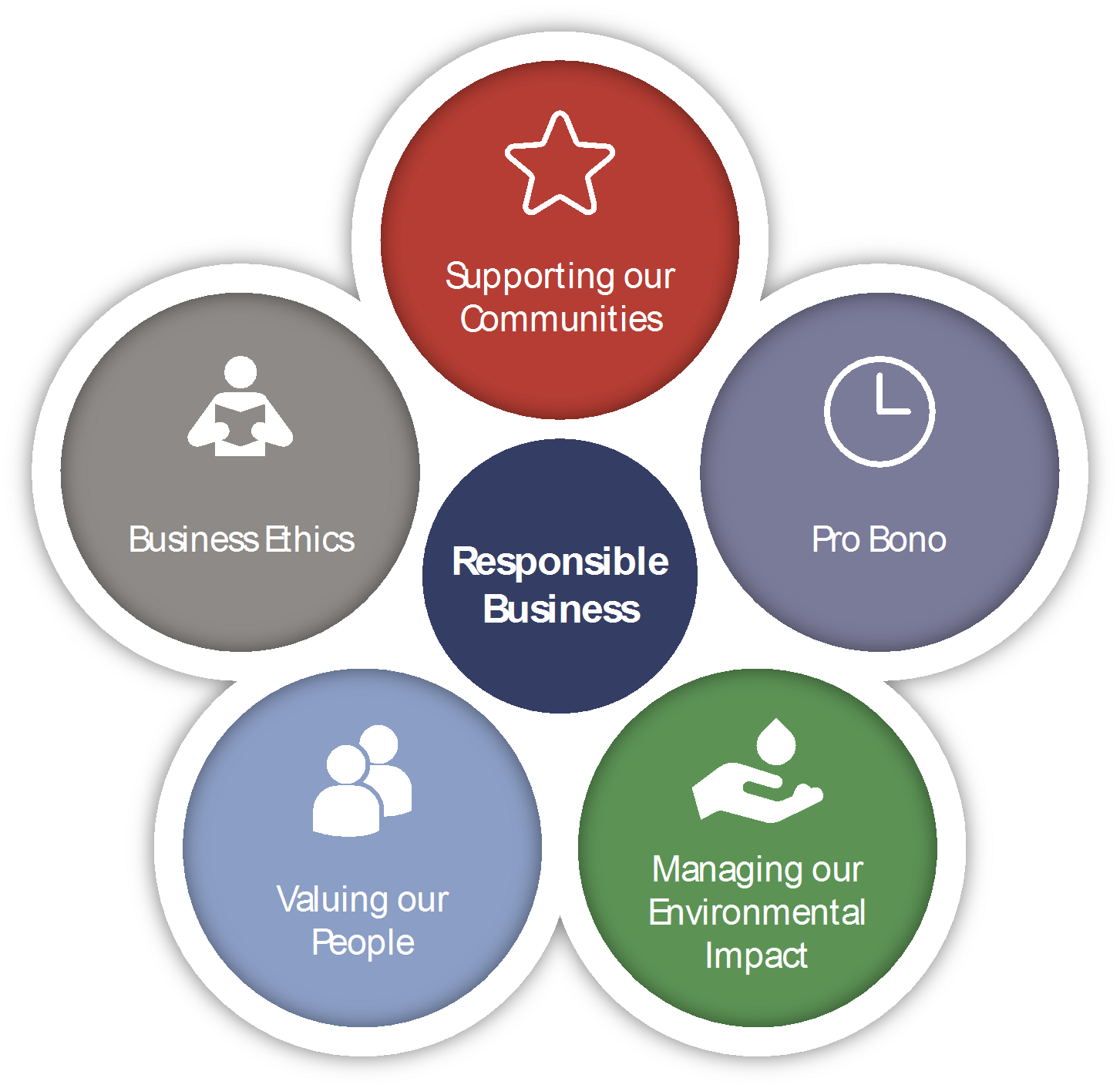Stakeholder’s management engagement and corporate social responsibility are becoming more and more important, and popular in the world of business. ISO 26000 is a standard which has focused on these two concepts for the sustainable business development. This standard is for all types of organizations; big or small, related to any sector of industry, working in any part of world, service or manufacturing, public or private, even Governmental Organizations can use this standard. The main intent of this International standard is to make every organization more socially responsible. ISO 26000 is a guidance standard and provides the guidelines to an organization, it is not intended for certification.
Essentially, CSR is centered on the idea of creating shared value and the role of businesses. The purpose of this model is to create value for its shareholders, but in such a way that it also creates value for society; a win-win situation for all. At heart, the modern concept of business is more than just earning the profit; customers are more conscious about the public image of the organization and the brands, while they prefer to buy from those companies which have a good reputation in the support of human beings and society overall.
It is evident that the organizations which are taking care of their employees are more productive, attain long-term employees because people prefer to stay with these companies and hold a substantially low turnover ratio. Moreover, obeying the laws and regulations protect organizations’ from any fines and litigations, ultimately, keeping company costs and reputation perpetual. Therefore, these companies can get good business from the well reputed international brands and sustainable business operations.
Corporate Social responsibility is necessary for businesses long-term corporate success and to ensure that businesses deliver value across the society. To be sustainable the companies must operate responsibility in alignment with universal principles and take actions that support the society around them. They should push sustainability deep into the corporate strategies. Moreover, top management should be committed to CSR programs and the companies should report regularly on CSR, engaging the other stakeholders locally where they have a presence.
The connection between the bottom line and company’s environmental, social and governance practice is becoming vital. The well-being of the workers, communities, and planet are inextricably tied to the health of the business. The smart choice is to proactively manage a company’s operations and value chain looking at risk and opportunities through a wide lens.
At the same time, our world challenges ranging from climate, water, and food crises to poverty conflict and inequality are in need of solutions that the private sector can help to deliver. Businesses are responding and moving beyond their basic responsibilities while going further into a strategic opportunity space. This includes the business model, products and services with a joint societal, and economic return; publically advocating government policies that advance sustainability, priorities and importantly, collaborating with peers to make systematic changes.
Further, there are other international standards which have the same intent as ISO 26000. Also, different brands have also developed their “code of conduct” to ensure the corporate social responsibility in their supply chain. Certainly, there is no concept of survival without considering the stakeholder and management engagement to fulfill the corporate social responsibility framework. You will be at risk if you do not consider any of your stakeholders. As such, SA8000, BSCI, and Sedex are the auditable standards which have got enough popularity during the last few years.
To implement any CSR standard in an organization first thing is the understanding of requirements of the standard that the stakeholders should be defined. For better implementation of CSR standards the organization should implement it as a management system such as; policies and procedures should be developed related to all aspects of CSR; all the stakeholders should be aware of these policies and procedures, roles and responsibilities, and authorities should be defined for the implementation of these policies and procedures; the CSR system should be monitored and evaluated internally as well as externally; the Performance of CSR system should be reviewed periodically.
Any CSR system should address the issues like legal, ethical, human rights, the welfare of the community and environmental protection. The concept of the businesses has been to change towards a more responsible and sustainable business. Even in the developing countries like Pakistan, all the organizations have to fulfill these basic requirements of CSR.
ILO Pakistan has addressed all these aspects in its Laws. Pakistan has the factor act of 1934, which deals with the issues related to child labor, working hours, compensations, health and safety, compensation and disciplinary practices. For the environmental protection of Pakistan, the Pakistan environmental Protection Act of 1997 has been established. Although Pakistan prevails all these laws and regulations, their implementation is very poor. For instance, the export-oriented companies are following these laws due to the pressure of their International buyers while the implementation of these laws among the local supplier’s companies is very weak. The organizations working in Pakistan have to fulfill theses CSR requirements due to the legal restriction of the state at the same time their International buyer also pushing them to fulfill these requirements.
Nonetheless, organizations in developing countries feel it is an additional burden to fulfill these CSR requirements and are not happy to invest in them, however, once they practice this standard they will enjoy more efficiency, productivity, good reputation and more business.
PECB
Incorporating Social Responsibility frameworks to your organization is without a doubt a requirement to consider. Hence, your organization must be willing to take care of all its stakeholders, even if it is not required by regulatory frameworks. Certifying against PECB ISO 26000 will train you to effectively operate in a socially responsible, ethical, and transparent way; contributing so to the welfare of your stakeholders.










